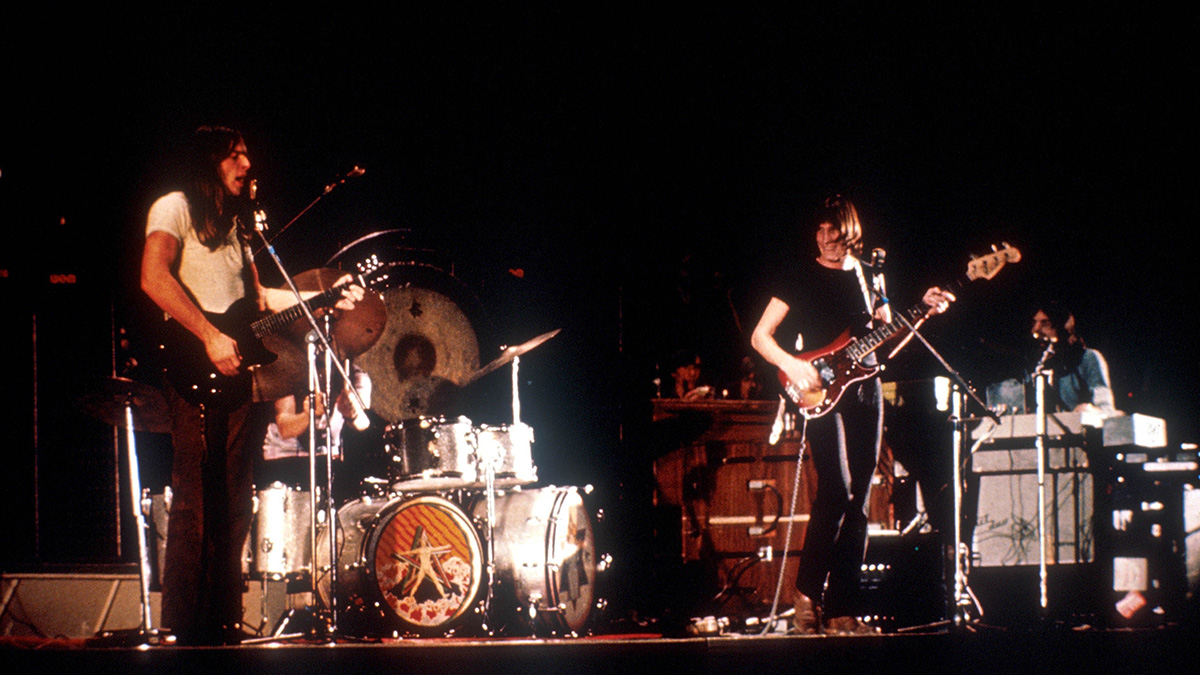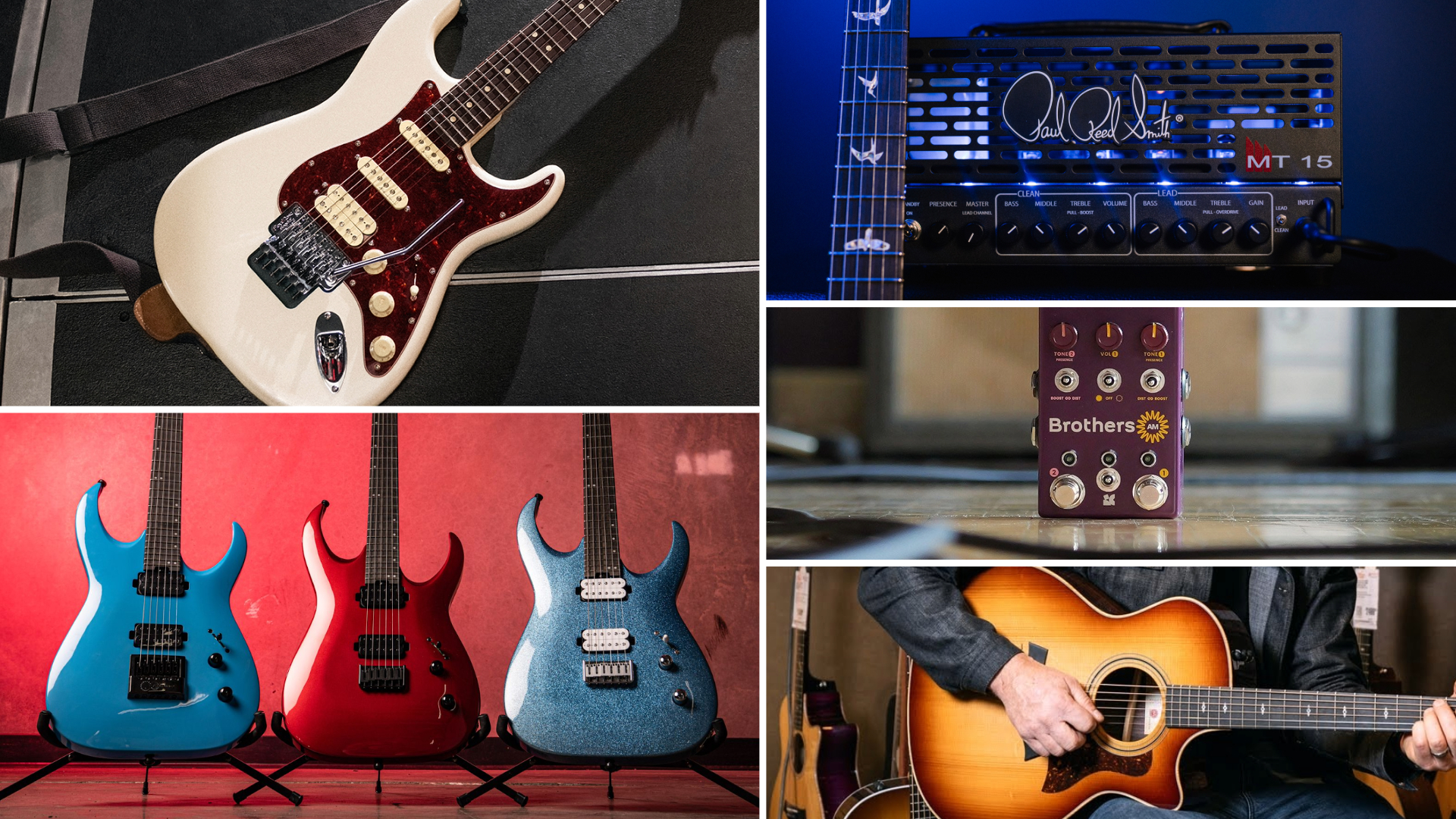The Six-String DIY Guide to Compression
A guide to compression—and how best to use it.

One integral element in recording is the use of compression, a subject that can at times be confusing for many.
So this latest instalment of my blog I want to discuss compression, and I thought what better person to explain it than Mike Senior, author of Mixing Secrets For The Small Studio, which I spoke about a few posts ago.
I put a few questions to Mike about compression, and hopefully his answers will help demystify the topic of compression for you all.
Simply put, what is compression?
A compressor is best thought of as an automatic fader, because it evens out the level of a signal so that you don't need to tweak the channel fader manually. So where you might ride a channel fader to prevent a track clipping while recording, a compressor can handle that automatically.
In mixing, on the other hand, the purpose of the compressor will be to even out a track's levels so that you don't have to continually adjust its track fader level from moment to moment to keep it at the right volume in the mix. People talk a lot about compressors changing the tone of a sound, or making it punchier, or whatever, but fundamentally these are side-effects of a compressor's basic level-control function, and you'll never be able to turn those side-effects to your benefit until you get to grips with the basics first.
How important is compression to recording and mixing?
Get The Pick Newsletter
All the latest guitar news, interviews, lessons, reviews, deals and more, direct to your inbox!
These days, the quality of even home-studio digital recording equipment has improved to an extent that you can get away just fine without compressing at all while recording -- although some people still choose to do so for aesthetic reasons or to provide more consistent headphone foldback during overdubbing, especially when recording vocals.
At mixdown, compression is vital to almost every major commercial music style outside the classical sphere. Not only will individual tracks be compressed, but mixed groups of channels will often be compressed further together too, and yet another round of compression may be applied to the mix's main output channel.
What are some simple, basic techniques for understanding and using compression that one can use?
There are two basic principles to bear in mind when starting to use compression at mixdown. First: are you achieving the technical level-evening effect you need -- in other words, do you still need to mess with your fader to keep the track's level solid in the mix? Second: do I like side-effects of the processing? The subjective sound
character of different compressors can vary a good deal, especially if you're using heavy compression, so if a given compressor is making one of your instruments sound lumpy or unnatural in some way, then adjust the compression settings or switch compressor entirely.
Beyond this, the main thing you need to know is how to adjust the amount of compression (usually via a Threshold, Input, Drive, or Compression control) and how to compensate for any level-loss incurred in the process (usually via a Make-up Gain or Output Gain control). Beware of compressors which provide automatic make-up gain, as these will encourage you to apply more compression than you need, simply because compressing will tend to make the processed sound feel louder.
For more info on compression, check out this link, which covers applications of some of the most classic compressors.
Click here for more about Mike Senior’s book.
Until next time …
Joe Matera is an Australia-based rock guitarist who has played in countless original and cover bands over the past 20 years. As a solo instrumental artist, his current release is an original guitar instrumental track called "Face Off'," now available on iTunes. He also makes a guest appearance playing a blazing guitar solo on UK thrash metal veterans Atomkraft's cover of the Thin Lizzy classic "Cold Sweat," which is out this summer. He also is a Guitar World magazine contributor. For more info, visit joematera.com.
Joe Matera is an Australian guitarist and music journalist who has spent the past two decades interviewing a who's who of the rock and metal world and written for Guitar World, Total Guitar, Rolling Stone, Goldmine, Sound On Sound, Classic Rock, Metal Hammer and many others. He is also a recording and performing musician and solo artist who has toured Europe on a regular basis and released several well-received albums including instrumental guitar rock outings through various European labels. Roxy Music's Phil Manzanera has called him, "... a great guitarist who knows what an electric guitar should sound like and plays a fluid pleasing style of rock." He's the author of Backstage Pass: The Grit and the Glamour.
"Upgrading from your entry-level acoustic opens the door to an entirely new world of tonewoods, body shapes, and brands": 6 signs it's time to upgrade from your first acoustic guitar
"I'm past my prime": 5 common excuses for not learning the guitar – and 5 body and mind-boosting reasons you should










